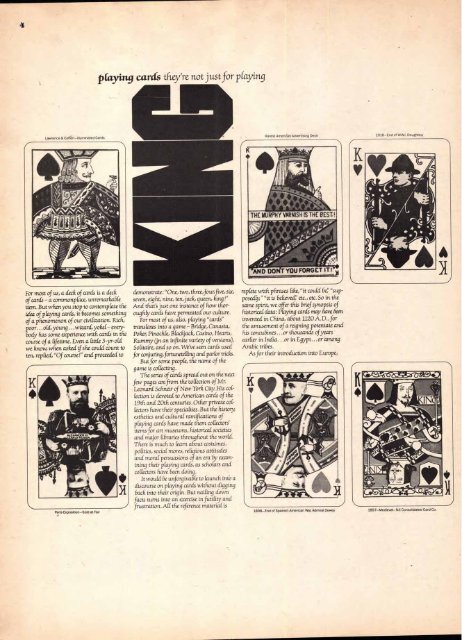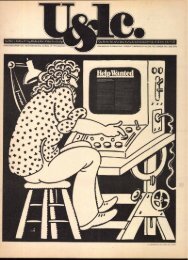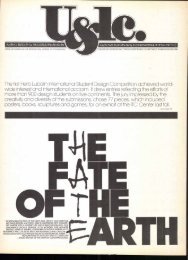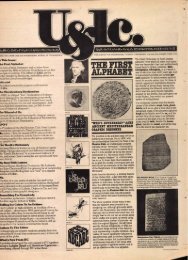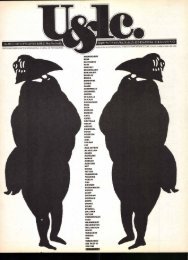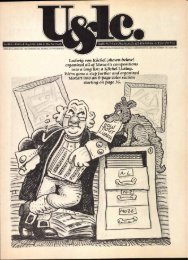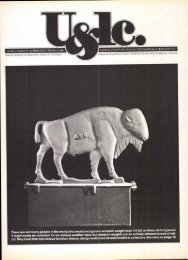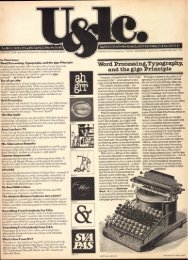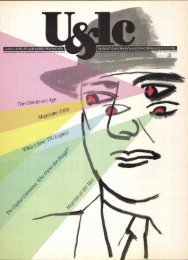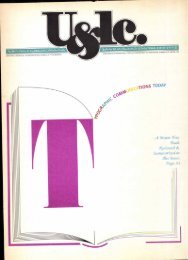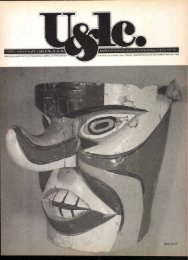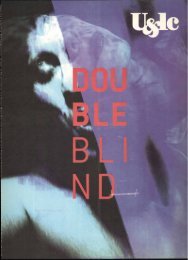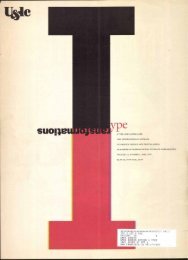Volume 8–4 (Low Res).pdf - U&lc
Volume 8–4 (Low Res).pdf - U&lc
Volume 8–4 (Low Res).pdf - U&lc
You also want an ePaper? Increase the reach of your titles
YUMPU automatically turns print PDFs into web optimized ePapers that Google loves.
4<br />
For most of us, a deck of cards is a deck<br />
of cards — a commonplace, unremarkable<br />
item. But when you stop to contemplate the<br />
idea of playing cards, it becomes something<br />
of a phenomenon of our civilization. Rich,<br />
poor... old, young ...wizard/yokel— everybody<br />
has some experience with cards in the<br />
course of a lifetime. Even a little 3-yr-old<br />
we know, when asked if she could count to<br />
ten, replied, "Of course!" and proceeded to<br />
praying cards they're not just for paying<br />
demonstrate: "One, two, three,four, ve, six,<br />
seven, eight, nine, ten, jack, queen, ng !"<br />
And that's just one instance of how thoroughly<br />
cards have permeated our culture.<br />
For most of us, also, playing "cards"<br />
translates into a game— Bridge, Canasta,<br />
Poker, Pinochle, Blackjack, Casino, Hearts,<br />
Rummy (in an infinite variety of versions),<br />
Solitaire, and so on. We've seen cards used<br />
for conjurin.g,fortuneteffing and parlor tricks.<br />
But for some people, the name of the<br />
game is collecting.<br />
The series of cards spread out on the next<br />
few pages are from the -collection of Mr.<br />
Leonard Schneir of New York City. His collection<br />
is devoted to American cards of the<br />
19th and 20th centuries. Other private collectors<br />
have their specialties But the histoiy,<br />
esthetics and cultural ramifications of<br />
playing cards have made them collectors'<br />
items for art museums, historical societies<br />
and major libraries throughout the world.<br />
There is much to learn about costumes,<br />
politics, social mores, religious attitudes<br />
and moral persuasions of an era by examining<br />
their playing cards, as scholars and<br />
collectors have been doing.<br />
It would be unforgivable to launch into a<br />
discourse on playing cards without digging<br />
back into their origin. But nailing down<br />
facts turns into an exercise in futility and<br />
frustration. All the reference material is<br />
replete with phrases like, "it could be,' "supposed,"<br />
"it is believed,' etc., etc. So in the<br />
same spirit, we offer this brief synopsis of<br />
historical data: Playing cards may have been<br />
invented in China, about 1120 A.D.,for<br />
the amusement of a reigning potentate and<br />
his concubines ... or thousands of years<br />
earlier in India.... or in Egypt... or among<br />
Arabic tribes.<br />
As for their introduction into Europe,


